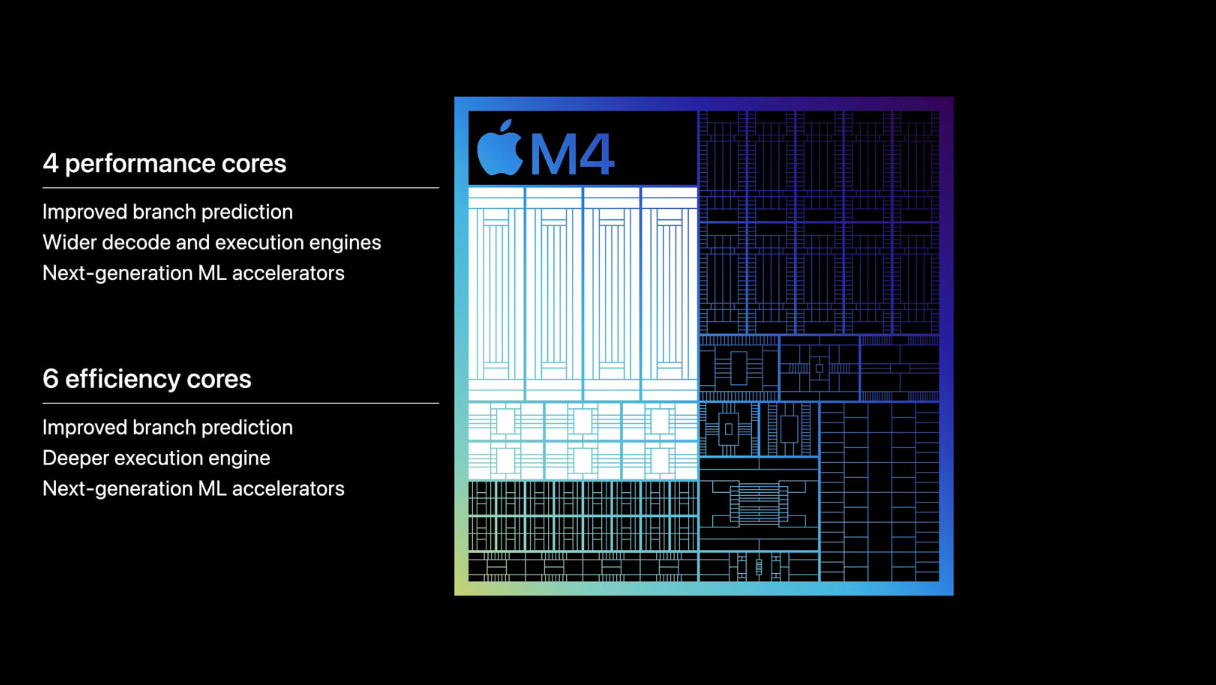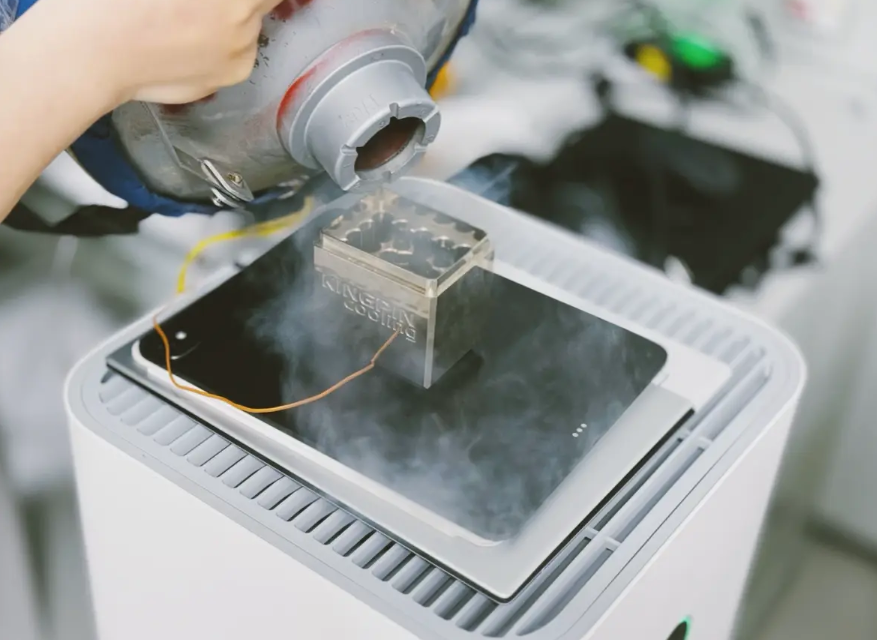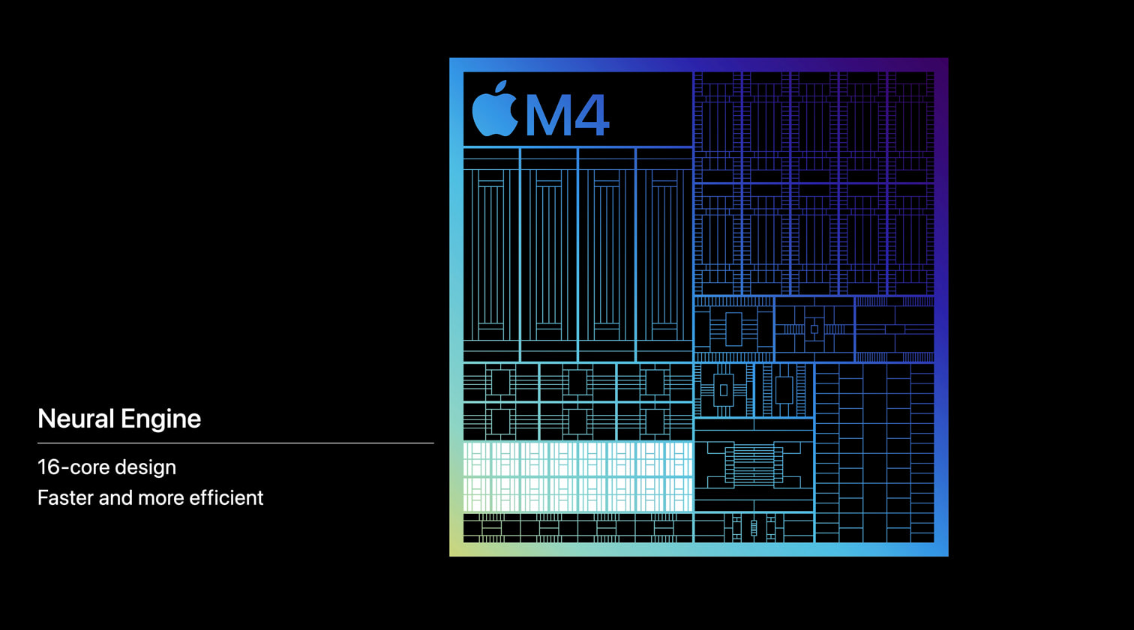By cooling the M4 chip used in the 2024 iPad Pro tablets with liquid nitrogen, Apple’s team managed to maintain extremely low temperatures, which enabled the chip to sustain high-performance levels without overheating.
They achieve record-breaking performance in benchmarks, showcasing the potential of extreme cooling techniques in pushing the boundaries of modern processors.

Notably, the M4 chip, produced using TSMC’s N3E process node, is available in two versions. The first version is a 10-core configuration featuring four performance cores and six efficiency cores, which comes with the 1TB and 2TB models equipped with 16GB of unified memory.
The second version of the M4 chip features a 9-core configuration, with three performance cores and six efficiency cores, found in the 256GB and 512GB models that include 8GB of unified memory.
Record Breaking Performance

The performance experiment involving testing the limits of Apple’s latest ARM-based M4 chip was conducted by the Geekerwan team. The test was probably conducted to assess the performance of the M4 chip under extreme cooling conditions and to compare it with other Apple silicon chips, such as the M3 Max and M2 Ultra.
They used a Kingpin Cooling T-Rex Rev 4 CPU LN2 pot to the back of the iPad Pro, likely where the M4 processor is situated. They poured liquid nitrogen into the pot to keep the chip cool during the benchmarking process.
Single-Core Performance
The M4 iPad Pro achieved a single-core score of 4,001 points. Even without active cooling, this single-core performance is impressive, making it 28% faster than the M3 Max in the 16-inch MacBook Pro. Additionally, the M4 outperformed the M2 Ultra from the Mac Studio by 44%.
Although the M4’s performance cores already run at a robust 4.40GHz, the liquid nitrogen overclocking increased the performance cores to 4.41GHz. The increase in clock speed from liquid nitrogen cooling enabled the M4 chip to score above 4000 points in the Geekbench 6 single-core test, pushing the M4 to its peak performance.
Multi-Core Performance
The M4’s multi-core performance was less impressive, 54% slower than the M3 Max. It also lagged behind the M2 Ultra by up to 57%. The highest multi-core score submitted by Geekerwan was 14,785 points, showing that the M4 still falls short of Apple’s older silicon in multi-core performance.
Unlocking ARM’s Potential With Liquid Nitrogen Cooling
The Geekerwan team experiment highlights the potential of ARM architecture in achieving high performance. Apple’s transition to ARM-based chips has significantly improved power efficiency and performance. This experiment further underscores the capabilities of ARM processors when pushed to their limits.
Users widely employ this benchmark to measure CPU performance, particularly focusing on real-world tasks and applications. A high score in Geekbench 6 indicates robust single-core performance, which is crucial for tasks that rely heavily on single-threaded operations.

Liquid nitrogen in high-end overclocking drastically reduces CPU temperatures and minimizes thermal throttling, allowing the chip to maintain higher clock speeds and maximize performance. Though impractical for daily use, it prompts exploration into specialized applications and advanced cooling research.
The M4 chip surpasses high-end desktop processors and Apple’s M3 Max and M2 Ultra, setting a new benchmark for ARM-based processors in raw performance.
Consumers can expect exceptional performance in upcoming devices like the iPad Pro. They make it ideal for demanding applications, from professional-grade software to high-end gaming.
Thank you! Please share your positive feedback. 🔋
How could we improve this post? Please Help us. 😔
[Comparisons Specialist]
I’m a passionate computer hardware expert specializing in CPUs and GPUs. With a lifelong curiosity for hardware and extensive hands-on experience, I provide valuable insights, practical advice, and in-depth analysis on these components. Engaging with the hardware community, I exchange knowledge and stay at the forefront of technological advancements.
Get In Touch: uzair@tech4gamers.com





